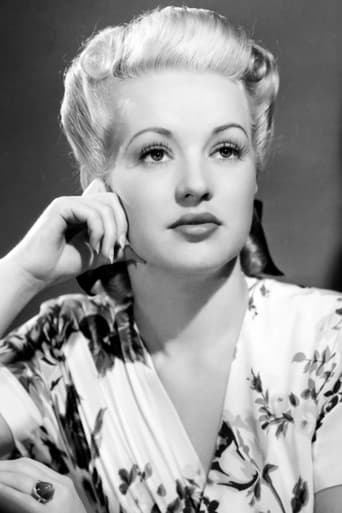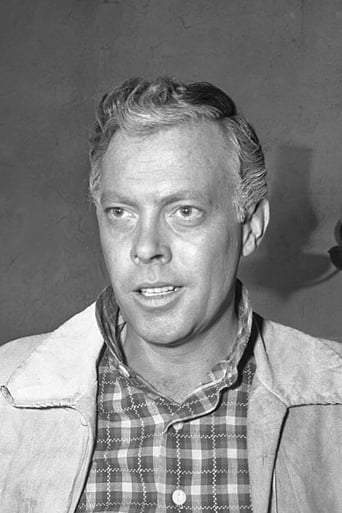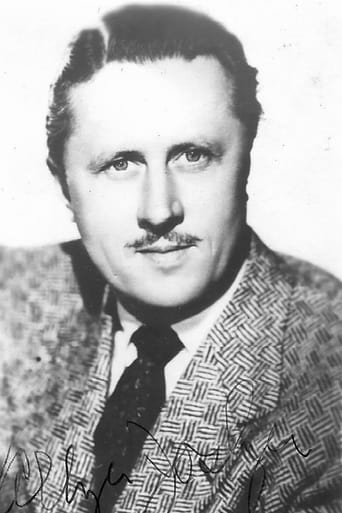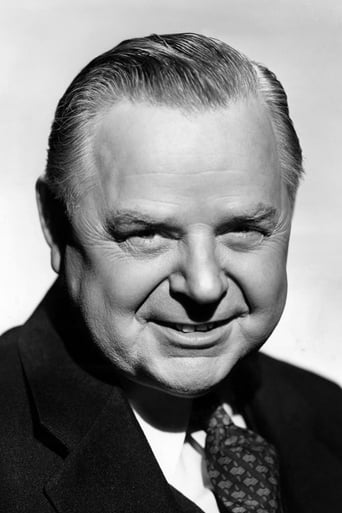TrueJoshNight
Truly Dreadful Film
PodBill
Just what I expected
Spoonatects
Am i the only one who thinks........Average?
Juana
what a terribly boring film. I'm sorry but this is absolutely not deserving of best picture and will be forgotten quickly. Entertaining and engaging cinema? No. Nothing performances with flat faces and mistaking silence for subtlety.
mark.waltz
Long before they were referred to as "secretaries", "girl Friday's", "administrative assistants" or even "typists", those who worked on those new fangled writing machines were simply called "typewriters". Graduating from a New York typewriters school, valedictorian Betty Grable is sent to Boston where she is informed by her new boss that he (Dick Haymes) expected a man. Fortunately, he has a suffragette aunt (Anne Revere) who has controlling interest in the firm, and that gets Grable the job. Now if she can just get her boss's respect, prevent office manager Gene Reynolds from sneering at her, and find a suitable place to live where a "typewriter" who happens to be a woman isn't confused for being a Jezebel, she'll make it just fine.And fine she does make it. She moves in to the boarding house of a bunch of self-acknowledged outcasts, run by rebellious Boston socialite Elizabeth Patterson who was ostracized for her unconventional ways. When Haymes attends a suffragette meeting with her, the stage is set for a romance between the two, even though that is against "rule #6". Grable expects his socialite mother (Elisabeth Risdon) to be a judgmental snob and prepares a series of society aimed insults for her with amusing results. Miss Pilgrim is an instant Boston celebrity, loathed by some and loved by others, and when the line-up of suffragettes and their few male supporters are revealed, the visual result is hysterical, featuring a few whom in 1894 were obviously of the "love that not reveal its name" category. (Films after the production code came in rarely showed obviously gay or lesbian characters, and this is one of the few).I wish there was less of the romance (featuring some unknown George Gershwin music that his brother Ira wrote new lyrics for) and more of the office setting and suffragette plot. That is more interesting, although the "scissors"/"knives" reference is truly hysterical and gives the impression that even if these two do get together, there will be no "pants wearing" in this family: it will be a marriage of equality-or else!I felt sorry for Gene Reynolds here, typecast in his usual prickly fat man role of a chauvinist fool. But for Revere and Risdon, I really wanted to see more of them. As sisters-in-law in the film, they never even appear together, a loss for the script. Patterson and her band of delightful eccentrics add some needed comedy which includes a transaction between three of the tenants simply to feed their egos. A woman resident of Patterson's house who has been working on re-writing the dictionary wouldn't be out of place in this new rhetoric world where the English language has all but disappeared together.
wpatey
This is a first class musical. Several of the songs have become standards and continue to turn up in Gershwin orchestral compilations and in the repertoires of top cabaret artists. Ira Gershwin's lyrics for this show were among his wittiest ever.Betty Grable and Dick Haymes are in great voice. separately and in duet.The scenes in the boarding house peopled by eccentrics were highly original and very funny.It is inconceivable that this film has not been released on VHS or DVD, and that there is no CD of the soundtrack.It is my hope that some connoisseur of show tunes in the music business, like Michael Feinstein, will press for its release in some form.
theowinthrop
Because of the prominence of the abolition movement in the 1830s -1860s, other American social movements of the day are not thought of very much. If you are interested, read Tyler's book FREEDOM'S FERMENT, which discusses the international peace movement, woman's rights, and other movements of equal interest in that period - only these did not lead to Civil War. The woman's suffrage movement had begun in 1848 in upstate New York, but it really does not get the momentum that made it memorable until the 1870s. Then Susan B. Anthony goes on trial (also in New York State) for daring to try to vote in a national election. Also Victoria Woodhull throws her hat into the ring (unofficially) for the Presidency in 1872. Later Anthony and Elizabeth Cady Stanton organize the woman's movement, so that after they both die in the early 1900s it grows until it achieves suffrage by Federal Constitutional Amendment in 1919.THE SHOCKING MISS PILGRIM is not the only film to tackle early woman's suffrage. There is a bit about the movement in the character of Miss Massingale in THE HALLELUJAH TRAIL, who keeps confronting (and romancing) Burt Lancaster's army Colonel. But THE SHOCKING MISS PILGRIM is actually the only film from that looks at the movement at a critical moment in it's history. A little background is needed here.In the early days of the women's suffrage movement, there was considerable debate regarding allying the movement with other social movements of the day. However, Anthony and Stanton were convinced by Frederick Douglass to work for abolition, because if slavery was abolished (Douglas argued) woman's servitude would have to follow soon after. But in the post-Civil War years, the relationship between Douglass and the suffrage leadership soured. Douglass, once the 13th, 14th, and 15th Amendments got passed, was more concerned about African American (read African-American males) consolidating and expanding their gains. He started to curb joint efforts with Stanton and Anthony on woman's rights, claiming that it just was not the time (although his previous argument had been to strike when the fire was hot!). Anthony and Stanton eventually over-reacted. They never forgave the betrayal by Douglass, and soon they managed to make the woman's suffrage movement lily white (and rather racist towards the former male slaves who now - theoretically - could vote). A small African-American woman's suffrage movement pushed forward too, but it was fighting antagonism by male African-Americans, and racism by white women who should have been their sisters in arms.The lesson though was now burned into the heads of the woman's movement - don't ally yourself with other causes. And, interestingly enough, this is the center for part of the plot of THE SHOCKING MISS PILGRIM. Betty Grable tries to keep her friends from allying themselves with another social movement which grew with woman's suffrage - Prohibition. She is unable to do so. In the decades from 1870 - 1920 many woman suffrage figures, like Carrie Nation, were also outspoken supporters of prohibition. These women (like Nation) had homes that had been wrecked by alcoholic husbands, so their stand and unity with Prohibitionists made sense. But the bulk of the woman's movement avoided this, because they did not want their political agenda tainted by a rival one. The same situation happened in the English suffrage movement too, when Mrs. Pankhurst's daughters split on allying with the British Labor Party, and the anti-war movement. Sylvia Pankhurst remained united with Labor leader and pacifist Keir Hardie, but her sister Cristobel was clever enough to offer to support the war effort in return for Asquith and Lloyd George's support for woman's voting rights.THE SHOCKING MISS PILGRIM has several things working for it. The two leads had a good story. Dick Haymes was actually better in this film as the hero who learns to respect working women, than he was as the son in STATE FAIR. Grable actually had a role in a musical that did not begin and end with her gorgeous legs, and moderately pleasing singing voice - it is her meatiest musical role. The Gershwin score is minor Gershwin, but still enjoyable. Like minor Marx Brothers or minor Van Gogh etchings, they are still better than most people's best. The supporting character actors cast, led by Gene Lockhart, Allan Joslyn, and Elizabeth Patterson manage to give a gentleness to the story, befitting the setting in Boston in the "Gilded Age". It is a nice musical - not great, but enjoyable.
bobj-3
The highlight of this film is the undiscovered songs by George Gershwin, which brother Ira wrote new lyrics to and Kay Swift arranged to make a film score that is a delight. One genuine hit, "For You, For Me, For Evermore," plus a near-hit, "Aren't You Glad We Did," are supported by a host of other pleasing tunes, including the witty novelty, "But Not in Boston." Dick Haymes' rich baritone is another strong point in what is, from a storyline point of view, a rather silly film.




